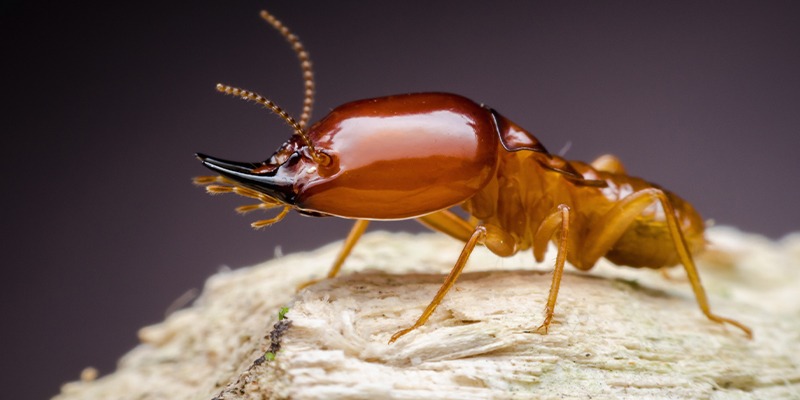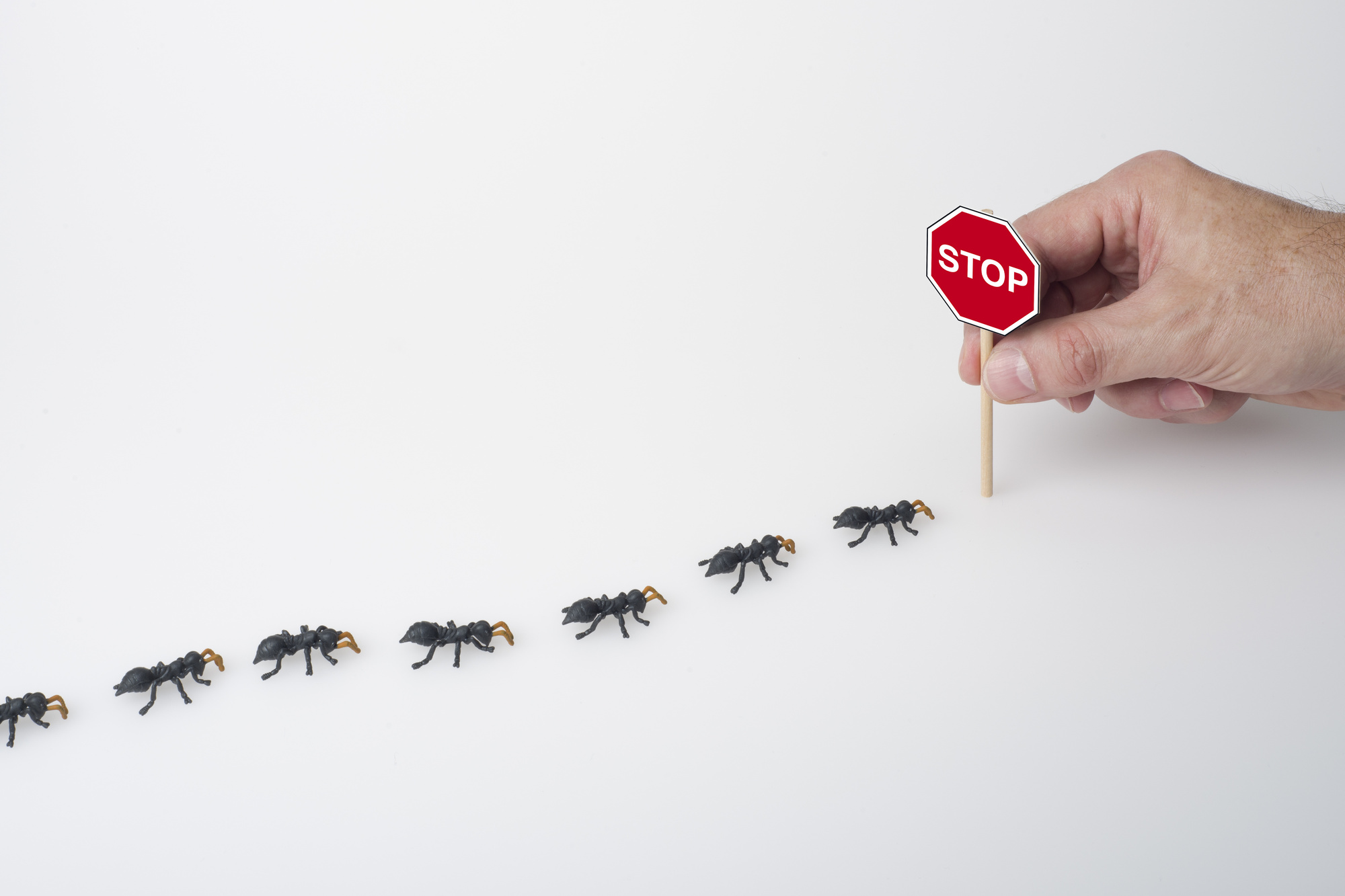Advanced Termite Control: Proven Methods for Getting Rid Of Termite Infestations
Advanced Termite Control: Proven Methods for Getting Rid Of Termite Infestations
Blog Article
Ecological Effect of Parasite Control: Harmonizing Efficiency With Sustainability
The ecological effect of insect control is a crucial concern that requires a delicate equilibrium between attaining efficiency in managing parasites and making certain sustainability of our ecological communities. As we aim to safeguard our crops, homes, and wellness from the hazards postured by insects, the techniques we use can accidentally harm the setting. From the use of harmful chemicals that leak right into our soil and water to the unexpected repercussions on non-target types, the repercussions of traditional pest control practices are significant. Nonetheless, there are emerging techniques that supply wish for a more sustainable technique to pest management. These options not just purpose to attend to the instant bug troubles but also think about the long-term wellness of our world.
Unsafe Chemicals in Parasite Control
The usage of harmful chemicals in bug control poses substantial environmental and wellness risks that necessitate mindful consideration and mitigation techniques. Insecticides, pesticides, and herbicides are typically made use of to eliminate pests, but their widespread application can result in unintentional effects. These chemicals can contaminate dirt, water resources, and the air, affecting not only the targeted insects but likewise valuable bugs, wild animals, and human beings.

To address these threats, integrated insect administration (IPM) methods are being promoted as a much more lasting choice. IPM includes a combination of approaches such as organic control, environment control, and the targeted use chemicals as a last resource (ant control lewisville nc). By adopting a holistic strategy to pest control, we can decrease the environmental and health and wellness effects linked with damaging chemicals while efficiently managing pest populaces
Influence On Non-Target Species
Taking into consideration the unintended consequences of parasite control techniques, the influence on non-target species is a crucial element that needs detailed evaluation. While insect control steps intend to target certain parasites, other microorganisms in the ecological community may be unintentionally affected. Non-target species, including useful pests, birds, mammals, and also plants, can experience indirect or direct damage from pesticide applications or biological control approaches.
Pesticides created to battle a specific insect bug may harm pollinators like bees or natural predators such as ladybugs. Organic control representatives, if not species-specific, can position dangers to unintended targets, interrupting the environmental balance.
To mitigate the influence on non-target varieties, integrated pest management (IPM) methods that highlight a holistic technique to pest control are recommended. These methods prioritize the use of eco-friendly methods, minimizing injury to advantageous organisms while efficiently managing pest populaces. Performing detailed threat analyses and checking the outcomes of pest control efforts are necessary actions in securing non-target varieties and advertising overall ecological community wellness.
Soil and Water Contamination
Unintended environmental repercussions of parasite control approaches extend beyond influencing non-target species, with substantial implications for dirt and water contamination. Chemicals, herbicides, and chemical plant foods made use of in pest control can leach right into the soil and pollute groundwater, presenting a threat to both aquatic and earthbound communities. Dirt contamination can interfere with the equilibrium of microorganisms vital for vitamins and mineral biking and plant growth, leading to decreased soil fertility and efficiency. These chemicals can linger in the setting for extensive durations, collecting in the dirt and possibly entering the food chain.
Water contamination is another essential issue connected with bug control techniques. Runoff from farming areas treated with pesticides can bring these chemicals into neighboring water bodies, influencing marine microorganisms and water top quality. Contaminants in water sources can have far-ranging repercussions, impacting not only marine life but likewise human health and wellness with the intake of contaminated water or aquatic organisms. To alleviate soil and water contamination from insect control activities, integrated insect monitoring techniques that prioritize sustainability and minimize chemical inputs are important.
Air Pollution From Pesticide Usage
Exposure to air-borne chemicals during farming applications positions a substantial problem for air contamination control steps. They can volatilize right into the air and type unstable natural substances (VOCs) and other airborne toxins when chemicals are sprayed onto crops - termite control. These chemicals can add to the formation of ground-level ozone, a significant part of smog that can have destructive impacts on human health, plant productivity, and general air quality. In addition, chemical drift, where chemicals are lugged by the wind to unintended areas, can result in the contamination of close-by ecosystems and water bodies.

Methods for Lasting Bug Control
In the realm of farming practices, executing lasting pest control approaches is extremely important for preserving ecological equilibrium and guarding plant returns. Sustainable parasite control highlights using eco-friendly methods to handle insect populations successfully while reducing injury to non-target microorganisms and ecological communities. Integrated Insect Management (IPM) is an extensively embraced approach that combines organic, cultural, physical, and chemical control approaches to accomplish long-lasting insect management solutions.
Plant rotation and diversity are likewise effective techniques to interrupt pest life cycles and produce less favorable problems for pests to grow. Eventually, by integrating these lasting insect control techniques, farmers can attain an equilibrium between pest monitoring performance and environmental stewardship.
Verdict
To conclude, the ecological influence of parasite control approaches need to be very carefully helpful hints thought about to balance effectiveness with sustainability. Dangerous chemicals utilized in parasite control can cause dirt and water contamination, air pollution, and harm non-target varieties - termite control services. It is critical to apply sustainable insect control methods to reduce these adverse results on the environment and promote a much healthier environment for future generations
By adopting an alternative technique to pest control, we can decrease the ecological and health and wellness impacts connected with damaging chemicals while properly managing pest populaces.

To reduce the air pollution created by chemical use, it is crucial to take on integrated insect management strategies that focus on the usage of non-chemical bug control approaches, such as crop turning, natural predators, and immune plant ranges. Sustainable parasite control highlights the usage of eco pleasant methods to take care of bug populations properly while lessening damage to non-target organisms and ecosystems. Integrated Pest Administration (IPM) is an extensively taken on technique that incorporates organic, social, physical, and chemical control methods to attain lasting bug monitoring options.
Report this page